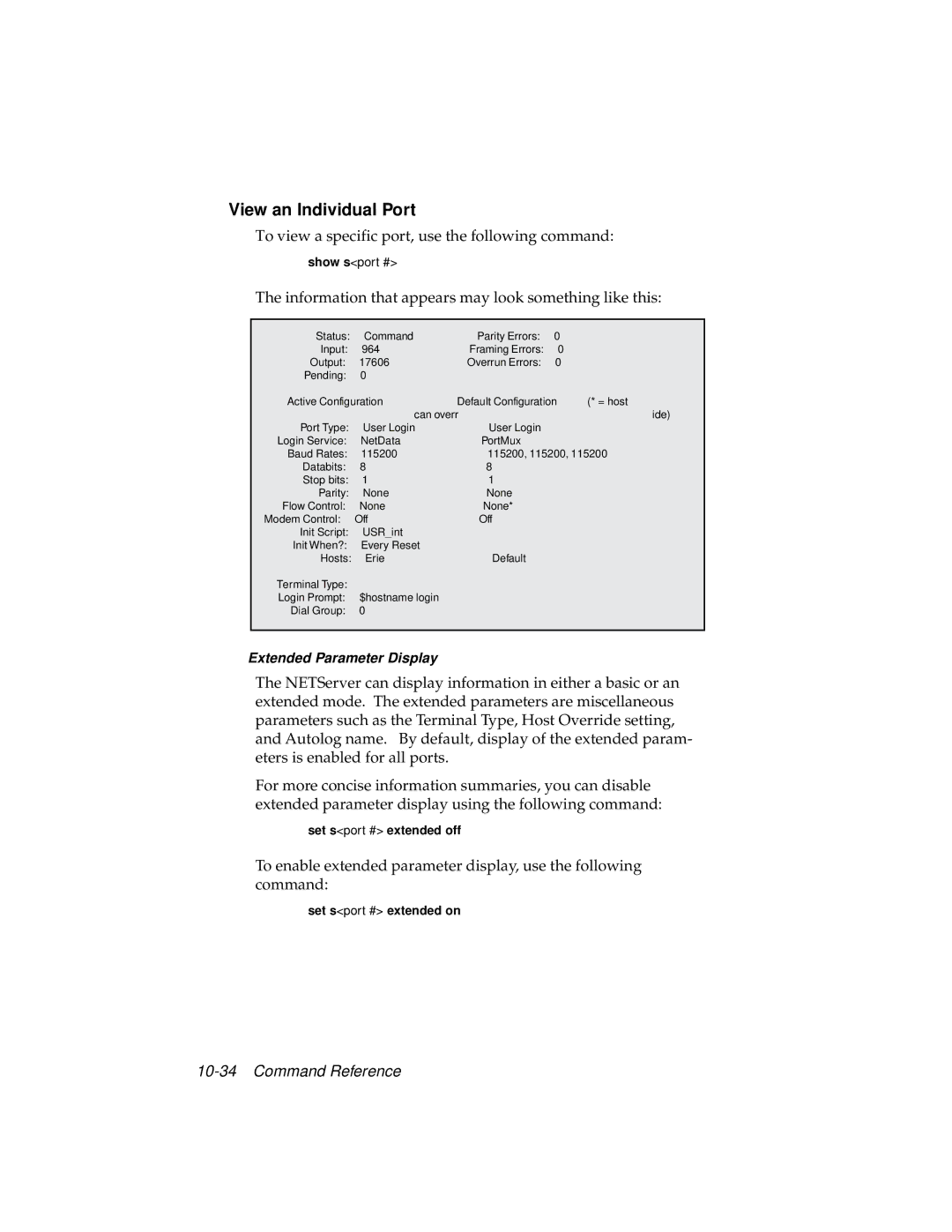View an Individual Port
To view a specific port, use the following command:
show s<port #>
The information that appears may look something like this:
Status: | Command | Parity Errors: | 0 |
|
Input: | 964 | Framing Errors: | 0 |
|
Output: | 17606 | Overrun Errors: | 0 |
|
Pending: | 0 |
|
|
|
Active Configuration | Default Configuration | (* = host | ||
can override) | ||||
Port Type: | User Login | User Login |
|
|
Login Service: | NetData | PortMux |
|
|
Baud Rates: | 115200 | 115200, 115200, 115200 | ||
Databits: | 8 | 8 |
|
|
Stop bits: | 1 | 1 |
|
|
Parity: | None | None |
|
|
Flow Control: | None | None* |
|
|
Modem Control: | Off | Off |
|
|
Init Script: | USR_int |
|
|
|
Init When?: | Every Reset |
|
|
|
Hosts: | Erie | Default |
|
|
Terminal Type: |
|
|
|
|
Login Prompt: | $hostname login |
|
|
|
Dial Group: | 0 |
|
|
|
|
|
|
|
|
Extended Parameter Display
The NETServer can display information in either a basic or an extended mode. The extended parameters are miscellaneous parameters such as the Terminal Type, Host Override setting, and Autolog name. By default, display of the extended param- eters is enabled for all ports.
For more concise information summaries, you can disable extended parameter display using the following command:
set s<port #> extended off
To enable extended parameter display, use the following command:
set s<port #> extended on
